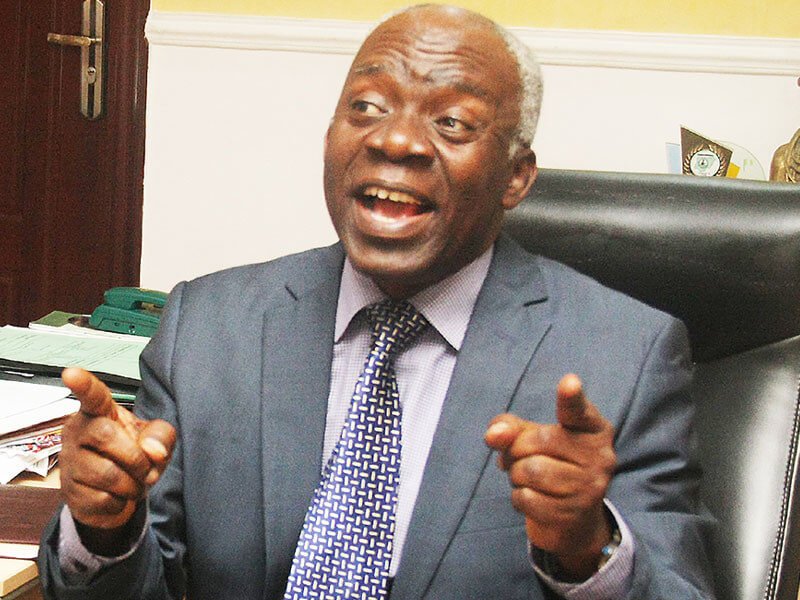Human rights lawyer, Femi Falana, says Nigeria has been recording over-bloated figures of votes since the 1999 general elections when the country returned to democracy.
Falana disclosed this while speaking on Channels Television’s political programme on Sunday night.
He commended the introduction of the Bimodal Voter Accreditation System (BVAS) — an electronic device designed to read Permanent Voter Cards (PVCs) and authenticate voters — by the Independent National Electoral Commission (INEC), adding that the technology had exposed the over-bloated votes Nigeria had been recording over the years.
There are a total of 93,469,008 registered voters in Nigeria but only 87,209,007 – 93.3 per cent – collected their Permanent Voter Cards (PVCs), making them the only ones eligible to vote in the 2023 general elections, according to the INEC.
- Kidnapped FCT chief’s wife, son freed after 7 weeks
- Oladipo Diya: The general who escaped execution finally bows out
However, only 25,286,616 – about 28.63 per cent – of all eligible voters in Nigeria, participated in the February 25 presidential election, the election data has shown.
Falana said the media reported a large turnout during the February 25 presidential election but only 25 million voters voted, noting that it was surprising that more figures were recorded in the years the country experienced voter apathy.
“Elections in Nigeria, since 1999, we have over-bloated figures. And since 1999, what you call voter apathy might not capture the problem. We may now begin to interrogate the figures that are recorded.
“A friend was telling me that whereas in his own area in one of the states up to 2019, the least votes in some riverine areas would be in the neighborhood of at least 130,000 but this time around, it’s barely 5,000 because you have to be captured by the BVAS machine before you can vote.
“In a state like Lagos, 2.6 million collected their PVC but at the end of the day, the presidential election attracted only 1.2 million votes.
“So, those figures that we are recording in the past from the majority of the states have been taken away by the BVAS machine. That is why the numbers have gone down,” he said.
Falana also condemned the “tribunalisation” of Nigeria’s democracy, stressing that almost all elections ended up in the tribunal.
He said this had put so much pressure on the judiciary, lamenting that all other important cases were abandoned to treat election-related cases.
The human rights lawyer advocated for the return of retired judges to take over election-related cases.
He also supported the call for televised proceedings of the election tribunals, saying it would give room for transparency.

 Join Daily Trust WhatsApp Community For Quick Access To News and Happenings Around You.
Join Daily Trust WhatsApp Community For Quick Access To News and Happenings Around You.


